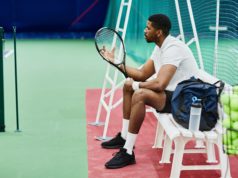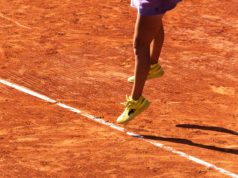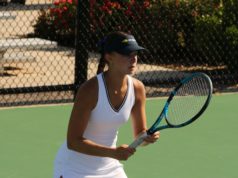By John Irvin, PTR, GPTA, Owner, Hot Shotz Tennis Academy
There are certain things ALTA captains and their players should keep in mind when looking for a coach. Perhaps you’ve had the same coach for years and want to look in a new direction. Here are some suggestions to optimize your choice of a tennis professional and to increase your teams’ chances to have fun and win.
First, make sure the coach you seek is ideal for the level at which your team is playing. If your team is comprised of lower-level players, you should find a coach who is more of a nurturer than a technician. These players need encouragement. Also, lower-level players need more stroke work than work on positioning. The ability to execute all shots at least reasonably well is paramount, so the coach should methodically go through forehand and backhand groundstrokes, volleys, serves, and a serviceable overhead smash (even if it means stabbing it back deep). After the players have a sound stroke foundation to work on, the coach can then expose the players to basic doubles positioning. Higher-level players, on the other hand, like to focus on tactics and positioning, and generally like to know what they’re doing wrong and how to correct it.
Second, finding a coach who is certified by the Professional Tennis Registry (PTR) or United States Professional Tennis Association (USPTA) should be one of the primary criteria in hiring a tennis professional/coach. The big difference between these sanctioning bodies is the PTR espouses the Standard Method (a progression of teaching strokes in a specific progression developed by founder Dennis Van Der Meer) and the PTR accepts any teaching method if it is sound. These organizations conduct rigorous, three-part exams that test the pro’s abilities in a written exam, skills exam, and practical teaching exam as well as on-court teaching apprentice hours and annual continuing education requirements for their members. A coach who is certified has a lifelong interest in the game and a desire to better his/herself as a tennis professional.
Third, look for professionalism. Examples would be a coach who is punctual, well-dressed, keeps good balls in their lesson cart, and responds to text or voice messages promptly.
Fourth, look for a coach who offers a seasonal game plan. I believe a good coach should address the following during the course of the season: serves/returns, attacking the net, patrolling of the net players, covering the alley, defensing the lob, and executing and covering the drop shot. Some coaches basically do the same drill every week, so after a while it gets stale and redundant.
The final quality you should look for is enthusiasm. I have asked the captains of the teams I have coached what they thought was important in a coach and they didn’t hesitate to respond: “Given that the pro is experienced and knowledgeable, then it’s really important that he or she be enthusiastic.” Ask for a trial lesson with the coach so you can see just how much they enjoy teaching your team and how infectious that enthusiasm is to your players. The pro will usually be happy to comply, for a nominal fee, like half their normal hourly rate. Their time is worth something, so I would not ask them to do it for free.




